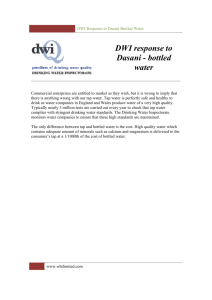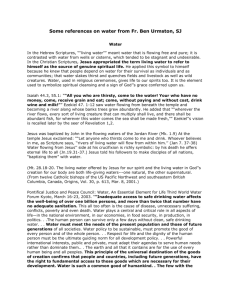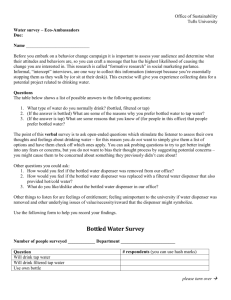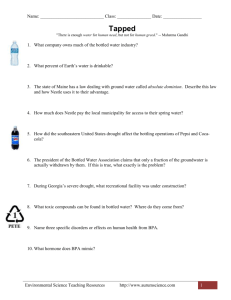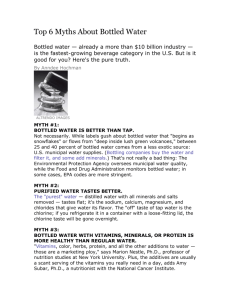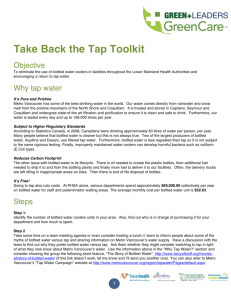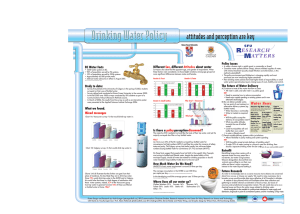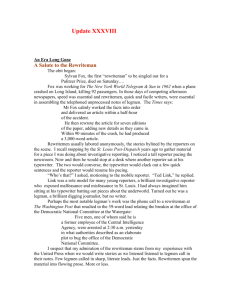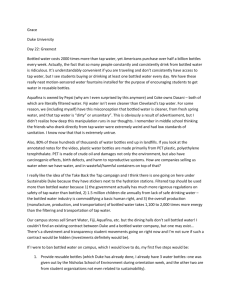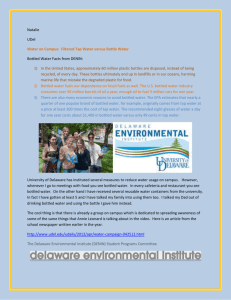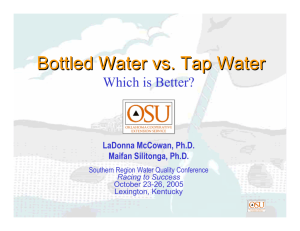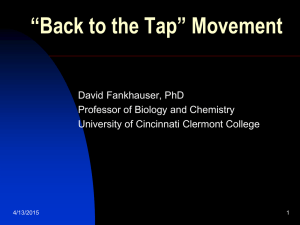Berkeley`s Tap Water and Bottled Water
advertisement
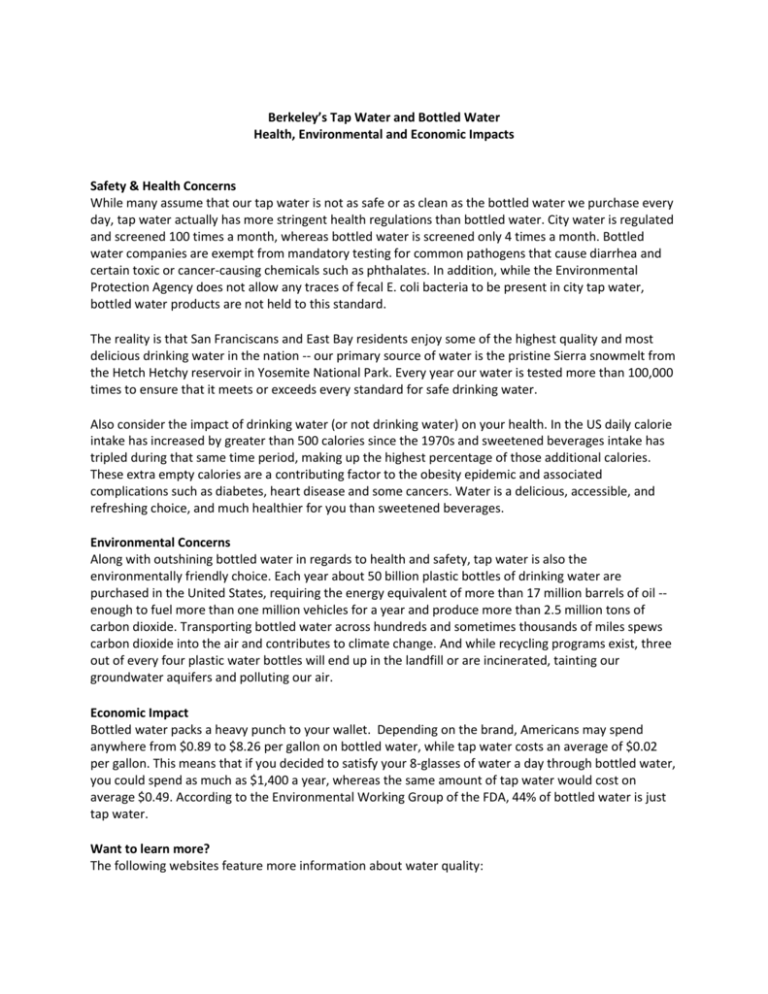
Berkeley’s Tap Water and Bottled Water Health, Environmental and Economic Impacts Safety & Health Concerns While many assume that our tap water is not as safe or as clean as the bottled water we purchase every day, tap water actually has more stringent health regulations than bottled water. City water is regulated and screened 100 times a month, whereas bottled water is screened only 4 times a month. Bottled water companies are exempt from mandatory testing for common pathogens that cause diarrhea and certain toxic or cancer-causing chemicals such as phthalates. In addition, while the Environmental Protection Agency does not allow any traces of fecal E. coli bacteria to be present in city tap water, bottled water products are not held to this standard. The reality is that San Franciscans and East Bay residents enjoy some of the highest quality and most delicious drinking water in the nation -- our primary source of water is the pristine Sierra snowmelt from the Hetch Hetchy reservoir in Yosemite National Park. Every year our water is tested more than 100,000 times to ensure that it meets or exceeds every standard for safe drinking water. Also consider the impact of drinking water (or not drinking water) on your health. In the US daily calorie intake has increased by greater than 500 calories since the 1970s and sweetened beverages intake has tripled during that same time period, making up the highest percentage of those additional calories. These extra empty calories are a contributing factor to the obesity epidemic and associated complications such as diabetes, heart disease and some cancers. Water is a delicious, accessible, and refreshing choice, and much healthier for you than sweetened beverages. Environmental Concerns Along with outshining bottled water in regards to health and safety, tap water is also the environmentally friendly choice. Each year about 50 billion plastic bottles of drinking water are purchased in the United States, requiring the energy equivalent of more than 17 million barrels of oil -enough to fuel more than one million vehicles for a year and produce more than 2.5 million tons of carbon dioxide. Transporting bottled water across hundreds and sometimes thousands of miles spews carbon dioxide into the air and contributes to climate change. And while recycling programs exist, three out of every four plastic water bottles will end up in the landfill or are incinerated, tainting our groundwater aquifers and polluting our air. Economic Impact Bottled water packs a heavy punch to your wallet. Depending on the brand, Americans may spend anywhere from $0.89 to $8.26 per gallon on bottled water, while tap water costs an average of $0.02 per gallon. This means that if you decided to satisfy your 8-glasses of water a day through bottled water, you could spend as much as $1,400 a year, whereas the same amount of tap water would cost on average $0.49. According to the Environmental Working Group of the FDA, 44% of bottled water is just tap water. Want to learn more? The following websites feature more information about water quality: UCB I Heart Tap Water Campaign: http://www.uhs.berkeley.edu/tapwater/ UC Berkeley Wellness Letter – What You Should Know About Your Drinking Water: http://www.wellnessletter.com/html/fw/fwLon12Water.html East Bay Municipal Utility District (EBMUD): http://www.ebmud.com/ Environmental Protection Agency (EPA): www.epa.gov/safewater/ American Water Works Association: http://drinktap.org/
